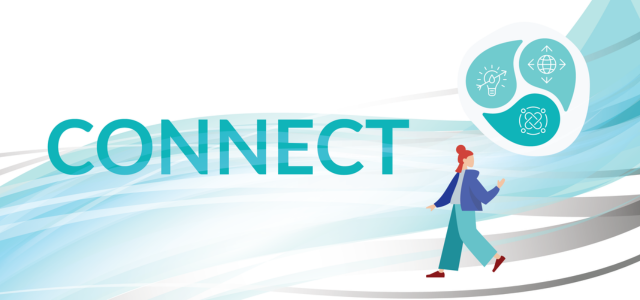What is a CoP? Why are CoPs useful? GWP’s CoP design methodology The IWRM Action Hub
These communities bring together stakeholders that work across sectors and scales, and thus help promote mutual understanding, perspective sharing, resolving conflicts, and joint decision making.
What is a CoP?
The term Communities of Practice (CoPs) can be described as a “group of people who share a concern or a passion for something they do and learn how to do it better as they interact regularly” (Wenger-Trayner & Wenger-Trayner, 2015) or “A gathering of individuals motivated by the desire to cross organizational boundaries, to relate to one another, and to build a body of actionable knowledge through coordination and collaboration.” (World Bank, 2018). In practical terms, CoPs are organised groups of people who share an interest in a defined area and want to coordinate efforts to achieve specific goals.A CoP is a social learning platform where different stakeholder can network, exchange information,improve their skills, try out new techniques,get feedback, thereby creating a momentum for positive and more sustainable change.
Why are CoPs useful?
CoPs are established for pursuing various strategic objectives. Typically, they are created to build competence by pooling together diverse knowledge, skills, and capabilities. By attracting partners, CoPs can also serve as mobilisers of resources, leveraging, and directing additional financial and social capital assets toward finding innovative solutions to common problems. Moreover, CoPs can increase social awareness of the complexity and significance of a challenge, contributing to the development of political buy-in and momentum for transformative change (World Bank, 2018).By bringing together a diverse group of stakeholders, including academia, civil society, governments, and businesses, communities can help promote cross sectoral collaboration and overcome silo thinking towards collective action.
The GWP team has elaborated a methodology that covers all principles of CoP design process. The methodologyprovides knowledge and information to organisations and fosters capacities of participants that are needed to independently work on all phases of CoP design and implementation. The methodology is flexible, and all activities can be adapted to specific organizational needs and expectations. This allows participants to receive practical information and already advance on the CoP design through tailored activities(learning by doing).
Step 1: Preparatory phase
Preliminary online consultations are organised for the GWP team to get a broad understanding of motivation and purpose of setting up a CoP. It is also an occasion to discuss expectations, needs, as well as potential limitations of the CoP approach. The overall aim of these consultations is to better personalise and tailor the training in Step 2.
Step 2: Training for community leaders
The training is designed for community leaders, future moderators, and representatives of key organisations and aims to help them define and design the CoP, as well as prepare for the launch and plan for the first interactions. The training can range from 1-3 days and includes a combination of theoretical inputs and interactive practical exercises including:
-
Systems Change Tool to understand the socio-hydrological system in which the proposed community of practice will be embedded.
-
Social Network Analysis Tool to understand how your targeted audience is already connected and via which platforms.
-
Value Creation Framework to understand the value theory and define different values for the CoP.
-
Fundamentals of Community Roles to estimated resources and nominate concrete responsibilities in the community.
-
Presentation of Good Cases to show on concrete examples how communities are designed, implemented and launched.
-
IT Lab where main technical aspects of community operation and moderation are presented.
-
Activity Lab focusing on creation of a Community Activity Plan, outlining the focus and different activities.
At the end of this step, participants will:
-
Have a good understanding of the basic concepts of CoP design and implementation;
-
Have the technical knowledge to moderate the Community on the IWRM Action Hub;
-
Have a completed Community Charter, which will outline the objectives, audience, activity plan and roles definition.
Step 3: Guidance and support
In the next step participants will design a follow up plan with concrete milestones towards successful launch of the CoP. GWP experts will provide further guidance and support to the community owners during this period and will help them address any concerns or questions. CoP moderators will also receive guidance for moderators and access to the Community for Moderators, where they will have the opportunity to exchange with other moderators and will be invited to relevant trainings. Having an overview of the governance and activities of many different CoPs, the GWP team will regularly extract relevant insights and learnings and provide them to the respective CoP owners.
In addition to the design process support, GWP offers the possibility to host communities of practice on the IWRM Action Hub. The IWRM Action Hub is an online global knowledge sharing platform that supports water professionals in designing and implementing action towards improving water management. The platform IWRM Action Network had over 2200 water professionals from over 150 countries, thus constituting a strong pool of water experts and professionals to tap from. The platform currently hosts more than 20 Communities, which foster online learning, networking, exchanges, and discussions on a variety of topics in water resources management.
The team
There is a dynamic team of experts working daily on the platform and to support the CoPs. The team is available to provide technical expertise, strategic advice, and guidance on the design, operationalisation of the communities, their moderation andgrowth, as well as user engagement. Being integrated in most of the live communities, and while providing support to the community.
Contact
Interested in setting up or becoming a co-convenor of a community of practice?
Contact us: iwrmactionhub@gwp.org

